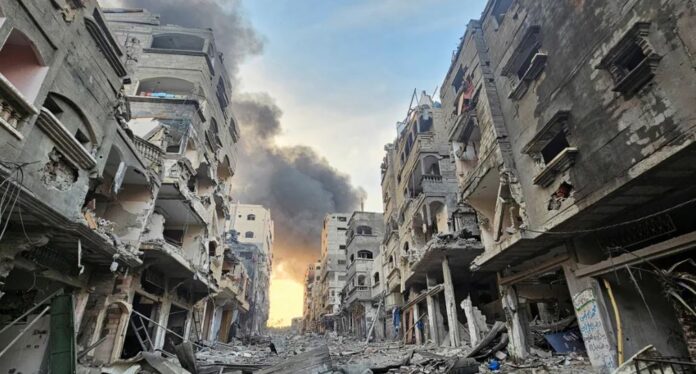A long-awaited ceasefire in Gaza officially began today after a three-hour delay, as Hamas released the names of three female hostages it plans to free later on Sunday. This ceasefire marks the beginning of a fragile process aimed at ending the ongoing conflict and facilitating the release of nearly 100 hostages taken during the October 7, 2023, Hamas attack, which triggered the war.

Celebrations erupted across Gaza, despite the delayed start to the truce, as some residents began returning to their homes. The delay underscored the delicate nature of the agreement, with the truce starting at 11:15 a.m. local time. The ceasefire is the first step in a longer, uncertain process that seeks to return hostages and ease the ongoing humanitarian crisis in Gaza.
Among the hostages set to be freed is Romi Gonen, 24, who was abducted from a music festival during the attack. Israeli media reported her inclusion on the Hamas list, though the Israeli government has not yet confirmed the names. The other two hostages’ families have not made public statements.
The delay was blamed by Hamas on “technical field reasons,” with the group reaffirming its commitment to the ceasefire deal. Israeli Prime Minister Benjamin Netanyahu had earlier stated that the ceasefire would not begin until Israel received the names of the hostages Hamas promised to release. The Israeli military had continued airstrikes in Gaza until the names were provided.
Despite the delay, an Israeli airstrike hit southern Gaza’s Khan Younis area, killing at least eight people. Gaza’s Health Ministry later reported additional deaths in Gaza City. These strikes came after the agreed ceasefire time, highlighting the challenges of enforcing the fragile truce.
The ceasefire, which is part of a broader agreement mediated by the United States, Qatar, and Egypt, represents a pivotal step toward ending the 15-month war. It includes the return of 33 hostages from Gaza and the release of hundreds of Palestinian prisoners. In return, Israel’s military will pull back into a buffer zone, and displaced Palestinians will be allowed to return home. Humanitarian aid is also expected to surge into Gaza.
This is only the second ceasefire of the war, and while it is longer than the previous brief pause last year, the road to a lasting peace remains uncertain. Negotiations for the second phase of the ceasefire are expected to begin in two weeks, with key questions remaining about the fate of the remaining hostages and the potential for renewed fighting.
In Gaza, celebrations continued as Palestinians hoped for relief after the devastation of more than a year of conflict. People began returning to their homes, despite ongoing military activity near the Israeli border. The resilience of the local population was evident as they began rebuilding their lives amid the fragile ceasefire agreement.



